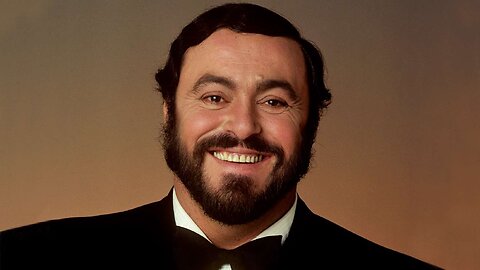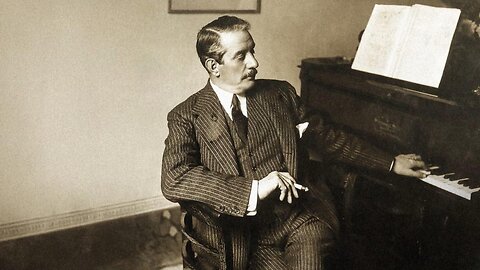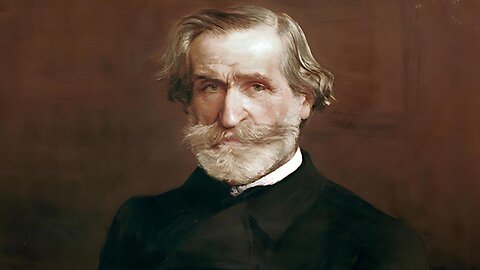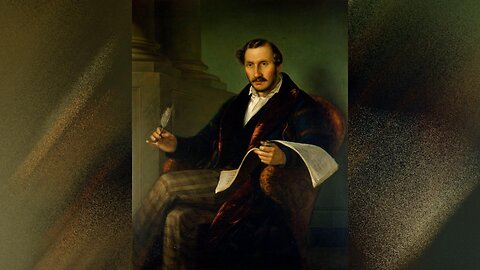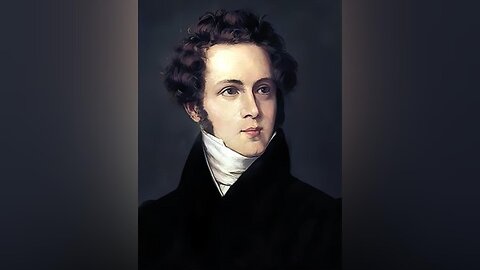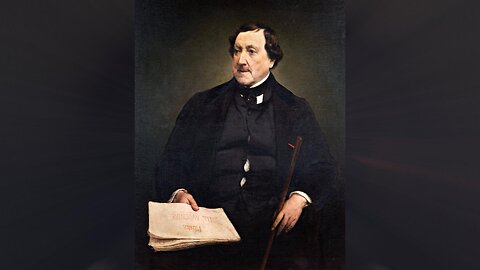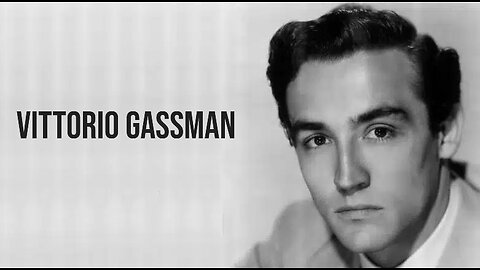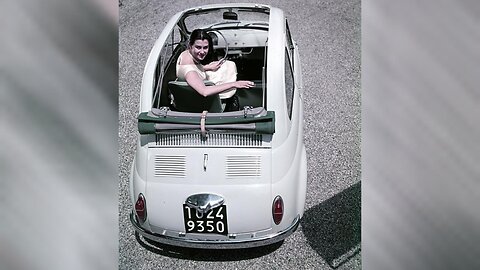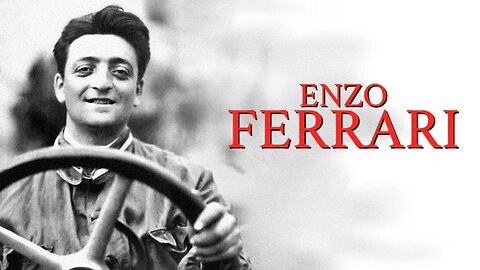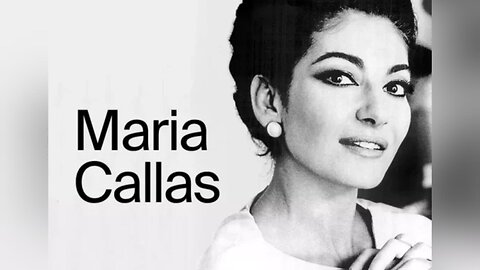
La Storia Siamo Noi (Rai Doc Series)
28 videos
Updated 1 month ago
-
La Storia siamo Noi: Maria Callas (ENG SUB)
 Adaneth - Arts & LiteratureMaria Callas, pseudonym of Maria Anna Cecilia Sofia Kalogeropoulou (New York, December 2, 1923 – Paris, September 16, 1977), was an American soprano of Greek origin, naturalized Italian and later Greek. Gifted with a voice with a homogeneous timbre and great volume, Maria Callas developed masterful control of it as well as remarkable range and agility, thanks to the bel canto training she received from soprano Elvira de Hidalgo. Combined with her great musicality and dramatic nature, this strong technical background enabled her to spearhead the rediscovery of the Italian repertoire of the first half of the 19th century, alongside conductors Tullio Serafin, Antonino Votto, and Nicola Rescigno, particularly Vincenzo Bellini and Gaetano Donizetti. Following the historic revivals of roles written for Maria Malibran and Giuditta Pasta, critics reintroduced the term "dramatic soprano d'agilità." Callas was a dramatic soprano, but through study she developed a great coloratura and range, rediscovering the possibilities of the dramatic soprano in the era of Bellini and Donizetti. Thus, Eugenio Gara coined the term "dramatic soprano d'agilità" specifically for her, a vocal category that included the 19th-century prima donnas Maria Malibran and Giuditta Pasta: these were high mezzo-sopranos in the Rossinian mold who, through assiduous practice, had extended their range to the highest notes to embody, in addition to the usual travesti characters, passionate and romantic soprano heroines such as Norma, Amina, and Lucia, without, however, losing the fullness of their low notes, which were suited to conveying their dramatic side. In reality, we have very different accounts of Callas's early vocal training, and in her, the lower notes are more artificial and constructed than the truly soprano ones, which were often approached with enthusiasm: the fact remains that Callas put herself, from the beginning of her career, in the condition to perform with full voice, and without mystification, the roles for which the most gifted sopranos of the early nineteenth century had become legendary. What, at times, could make Callas seem like a mezzo-soprano was instead the natural dark color and the breadth of her sound, which, especially at the beginning of her career and at a very young age, allowed her to tackle authentically dramatic soprano parts: Abigaille, Leonora in Fidelio, Tosca, Turandot, Brunilde, Isolde. Beyond her natural characteristics, no singer other than her has managed to achieve such musically expressive results using classical operatic singing, based on correct and constant breath support, diaphragmatic support, and the consequent masking of sounds across the entire range, from the lowest to the highest. However, during the years of her greatest vocal and artistic splendor, up until her separation from her husband, these sounds were always subordinated to expressiveness, never an end in themselves: that is, they were used according to the meaning of the words and the moment of the sentence. Unique was Callas's obstinacy and will to apply, in a maniacal and stressful way for the performer, the bel canto method of Baroque origin—in a word, "classical"—to the entire proto-Romantic, Verdian and verismo world, thus sculpting, in a short parabola, vocal characters that today are very difficult, if not impossible, to forget. Callas's art, however, was even more complex than just her vocal work, equally involving the scenic aspect of the parts she performed, achieving a completely unprecedented synthesis between singing and dramatic art. Hers was a complete restoration of the concept of "bel canto," encompassing everything from voice to phrasing, from acting to posture, from makeup to even hair. She was the first opera singer to interest leading film and theater directors in opera; Aside from the experiments with the Maggio Musicale Fiorentino (Rossini's Armida, with sets by Alberto Savinio and choreography by Léonide Massine, 1952), her collaborations with Luchino Visconti (who considered her the greatest living actress) at La Scala for La Vestale, La sonnambula, and La traviata (1954–1955 season, with revivals in 1956 and 1957), Anna Bolena and Ifigenia in Tauride (1956–1957 season, with revival in 1958), and subsequent collaborations with Franco Zeffirelli, Margherita Wallmann, and Alexis Minotis were of historic importance. Her performances brought melodrama back to its golden age, but above all they reinstated it rightfully among the highest artistic expressions, making it almost a contemporary genre, capable of incessantly renewing itself and attracting a much younger audience to the theatres, as well as providing inspiration for highly complex critical and aesthetic analyses. Her artistic success and subsequent media exposure due to her extra-theatrical social interactions have built a myth around her figure, attributing her the title "Divina" (Divine).106 views
Adaneth - Arts & LiteratureMaria Callas, pseudonym of Maria Anna Cecilia Sofia Kalogeropoulou (New York, December 2, 1923 – Paris, September 16, 1977), was an American soprano of Greek origin, naturalized Italian and later Greek. Gifted with a voice with a homogeneous timbre and great volume, Maria Callas developed masterful control of it as well as remarkable range and agility, thanks to the bel canto training she received from soprano Elvira de Hidalgo. Combined with her great musicality and dramatic nature, this strong technical background enabled her to spearhead the rediscovery of the Italian repertoire of the first half of the 19th century, alongside conductors Tullio Serafin, Antonino Votto, and Nicola Rescigno, particularly Vincenzo Bellini and Gaetano Donizetti. Following the historic revivals of roles written for Maria Malibran and Giuditta Pasta, critics reintroduced the term "dramatic soprano d'agilità." Callas was a dramatic soprano, but through study she developed a great coloratura and range, rediscovering the possibilities of the dramatic soprano in the era of Bellini and Donizetti. Thus, Eugenio Gara coined the term "dramatic soprano d'agilità" specifically for her, a vocal category that included the 19th-century prima donnas Maria Malibran and Giuditta Pasta: these were high mezzo-sopranos in the Rossinian mold who, through assiduous practice, had extended their range to the highest notes to embody, in addition to the usual travesti characters, passionate and romantic soprano heroines such as Norma, Amina, and Lucia, without, however, losing the fullness of their low notes, which were suited to conveying their dramatic side. In reality, we have very different accounts of Callas's early vocal training, and in her, the lower notes are more artificial and constructed than the truly soprano ones, which were often approached with enthusiasm: the fact remains that Callas put herself, from the beginning of her career, in the condition to perform with full voice, and without mystification, the roles for which the most gifted sopranos of the early nineteenth century had become legendary. What, at times, could make Callas seem like a mezzo-soprano was instead the natural dark color and the breadth of her sound, which, especially at the beginning of her career and at a very young age, allowed her to tackle authentically dramatic soprano parts: Abigaille, Leonora in Fidelio, Tosca, Turandot, Brunilde, Isolde. Beyond her natural characteristics, no singer other than her has managed to achieve such musically expressive results using classical operatic singing, based on correct and constant breath support, diaphragmatic support, and the consequent masking of sounds across the entire range, from the lowest to the highest. However, during the years of her greatest vocal and artistic splendor, up until her separation from her husband, these sounds were always subordinated to expressiveness, never an end in themselves: that is, they were used according to the meaning of the words and the moment of the sentence. Unique was Callas's obstinacy and will to apply, in a maniacal and stressful way for the performer, the bel canto method of Baroque origin—in a word, "classical"—to the entire proto-Romantic, Verdian and verismo world, thus sculpting, in a short parabola, vocal characters that today are very difficult, if not impossible, to forget. Callas's art, however, was even more complex than just her vocal work, equally involving the scenic aspect of the parts she performed, achieving a completely unprecedented synthesis between singing and dramatic art. Hers was a complete restoration of the concept of "bel canto," encompassing everything from voice to phrasing, from acting to posture, from makeup to even hair. She was the first opera singer to interest leading film and theater directors in opera; Aside from the experiments with the Maggio Musicale Fiorentino (Rossini's Armida, with sets by Alberto Savinio and choreography by Léonide Massine, 1952), her collaborations with Luchino Visconti (who considered her the greatest living actress) at La Scala for La Vestale, La sonnambula, and La traviata (1954–1955 season, with revivals in 1956 and 1957), Anna Bolena and Ifigenia in Tauride (1956–1957 season, with revival in 1958), and subsequent collaborations with Franco Zeffirelli, Margherita Wallmann, and Alexis Minotis were of historic importance. Her performances brought melodrama back to its golden age, but above all they reinstated it rightfully among the highest artistic expressions, making it almost a contemporary genre, capable of incessantly renewing itself and attracting a much younger audience to the theatres, as well as providing inspiration for highly complex critical and aesthetic analyses. Her artistic success and subsequent media exposure due to her extra-theatrical social interactions have built a myth around her figure, attributing her the title "Divina" (Divine).106 views -
La Storia siamo Noi: Luciano Pavarotti (ENG SUB)
 Adaneth - Arts & LiteratureLuciano Pavarotti (Modena, 12 October 1935 – Modena, 6 September 2007) was an Italian tenor. Gifted with a voice that is ringing in the high notes and rich in the middle, with clear phrasing and a limpid timbre, he is counted among the greatest tenors of all time, as well as among the greatest exponents of opera music. With over 100 million copies sold worldwide, he is estimated to be one of the top singers in any musical genre, also in terms of sales, as well as one of the most successful Italian singers internationally. Pavarotti's name became known to the general public thanks to his increasingly frequent television performances, such as his role as Rodolfo, filmed live at the Metropolitan Opera in New York in March 1977, alongside another Italian, Renata Scotto, which garnered the highest audience ratings of the time for a televised opera. The artist has won several Grammy Awards and platinum and gold records. Known as "Maestro" and by the nicknames Big Luciano and Big P, given to him in the Anglo-Saxon world, over the course of his career, which spanned over half a century, he has won six Grammy Awards, including a Grammy Legend Award, awarded to him in 1998. Furthermore, by virtue of his contributions to the world of music, he received the Kennedy Center Honors in 2001 and was awarded the highest honors of the Italian Republic. Pavarotti possessed a true tenor voice, very clear and, especially in the early part of his career, extended significantly into the high notes, reaching full command of the C4 and D4. The highest note he could perform was E flat, which he never actually sang, having never performed in operas that required it. He did, however, sing the falsettone F4 from Bellini's I puritani, though only on recordings and never live. Pavarotti's lowest note was a low A, which he also never sang due to his exclusively tenor role in opera, for which such low notes are rarely expected. Although he was unable to read the entire orchestral score, as he admitted in an interview with the BBC, Pavarotti had a perfect command of the musical parts written for a tenor and a piano. An artist at times informal and a skilled communicator, in the modern sense of the term, and above all a significant figure even outside the world of entertainment, Pavarotti has been recognized by many critics as one of the finest tenor singers of the 20th century, a register that has also produced numerous great protagonists in the world of opera. On February 10, 2006, during the opening ceremony of the Turin Winter Olympics, he lip-synced—due to the freezing temperatures that prevented him from mastering his voice—"Nessun dorma," an aria from Giacomo Puccini's Turandot, which had been recorded in the studio a few weeks earlier. It was the Maestro's final performance. In July of the same year, he underwent emergency surgery at a New York hospital to remove a malignant tumor from his pancreas.84 views
Adaneth - Arts & LiteratureLuciano Pavarotti (Modena, 12 October 1935 – Modena, 6 September 2007) was an Italian tenor. Gifted with a voice that is ringing in the high notes and rich in the middle, with clear phrasing and a limpid timbre, he is counted among the greatest tenors of all time, as well as among the greatest exponents of opera music. With over 100 million copies sold worldwide, he is estimated to be one of the top singers in any musical genre, also in terms of sales, as well as one of the most successful Italian singers internationally. Pavarotti's name became known to the general public thanks to his increasingly frequent television performances, such as his role as Rodolfo, filmed live at the Metropolitan Opera in New York in March 1977, alongside another Italian, Renata Scotto, which garnered the highest audience ratings of the time for a televised opera. The artist has won several Grammy Awards and platinum and gold records. Known as "Maestro" and by the nicknames Big Luciano and Big P, given to him in the Anglo-Saxon world, over the course of his career, which spanned over half a century, he has won six Grammy Awards, including a Grammy Legend Award, awarded to him in 1998. Furthermore, by virtue of his contributions to the world of music, he received the Kennedy Center Honors in 2001 and was awarded the highest honors of the Italian Republic. Pavarotti possessed a true tenor voice, very clear and, especially in the early part of his career, extended significantly into the high notes, reaching full command of the C4 and D4. The highest note he could perform was E flat, which he never actually sang, having never performed in operas that required it. He did, however, sing the falsettone F4 from Bellini's I puritani, though only on recordings and never live. Pavarotti's lowest note was a low A, which he also never sang due to his exclusively tenor role in opera, for which such low notes are rarely expected. Although he was unable to read the entire orchestral score, as he admitted in an interview with the BBC, Pavarotti had a perfect command of the musical parts written for a tenor and a piano. An artist at times informal and a skilled communicator, in the modern sense of the term, and above all a significant figure even outside the world of entertainment, Pavarotti has been recognized by many critics as one of the finest tenor singers of the 20th century, a register that has also produced numerous great protagonists in the world of opera. On February 10, 2006, during the opening ceremony of the Turin Winter Olympics, he lip-synced—due to the freezing temperatures that prevented him from mastering his voice—"Nessun dorma," an aria from Giacomo Puccini's Turandot, which had been recorded in the studio a few weeks earlier. It was the Maestro's final performance. In July of the same year, he underwent emergency surgery at a New York hospital to remove a malignant tumor from his pancreas.84 views -
La Storia siamo Noi: Giacomo Puccini (ENG SUB)
 Adaneth - Arts & LiteratureGiacomo Puccini (Lucca, 22 December 1858 – Brussels, 29 November 1924) was an Italian composer, considered one of the greatest and most significant opera composers of all time. His early compositions were rooted in the tradition of late 19th-century Italian opera. However, Puccini later successfully developed his work in a personal direction, incorporating themes typical of musical verismo, a certain taste for the exotic, and studying the works of Richard Wagner for both harmonic and orchestral aspects and for his use of the leitmotif technique. He received his musical education at the Milan Conservatory, under the guidance of maestros such as Antonio Bazzini and Amilcare Ponchielli. At the Conservatory, he also befriended Pietro Mascagni. A leading figure in the Italian operatic world between the nineteenth and twentieth centuries, Giacomo Puccini drew closely from the two dominant trends: the veristic one first (in 1895 he began working on an operatic adaptation of Verga's La lupa, abandoning it after a few months), and the D'Annunzio one later. It is equally difficult to place his artistic personality within the international panorama, as his music, despite its incessant stylistic evolution, does not present the explicit innovative tension of many of the major European composers of the time. Puccini, on the other hand, devoted himself almost exclusively to theatrical music and, unlike the masters of the twentieth-century avant-garde, always wrote with audiences in mind, personally overseeing the productions and accompanying his works around the world. If he only produced twelve operas (including the three one-act operas that comprise the Trittico), it was to develop absolutely impeccable theatrical arrangements, allowing his works to establish themselves firmly in the repertoires of opera houses worldwide. Interest, variety, rapidity, synthesis and psychological depth, and an abundance of scenic inventions are the fundamental ingredients of his theatre. Audiences, though at times disoriented by the novelties contained in each opera, always ultimately sided with him; conversely, music critics, particularly Italian ones, regarded Puccini with suspicion or even hostility for a long time. Puccini's most famous operas, considered repertoire for the world's major theatres, are La bohème (1896), Tosca (1900), Madama Butterfly (1904), and Turandot (1924). The latter was never completed because the composer died of throat cancer (Puccini was a heavy smoker) before he could finish the final pages. Various endings were later added to the opera: Franco Alfano's (the first, contemporary with the world premiere and still the most performed today); later, in the 21st century, by Luciano Berio. There have also been several other contributions to the present day.57 views 2 comments
Adaneth - Arts & LiteratureGiacomo Puccini (Lucca, 22 December 1858 – Brussels, 29 November 1924) was an Italian composer, considered one of the greatest and most significant opera composers of all time. His early compositions were rooted in the tradition of late 19th-century Italian opera. However, Puccini later successfully developed his work in a personal direction, incorporating themes typical of musical verismo, a certain taste for the exotic, and studying the works of Richard Wagner for both harmonic and orchestral aspects and for his use of the leitmotif technique. He received his musical education at the Milan Conservatory, under the guidance of maestros such as Antonio Bazzini and Amilcare Ponchielli. At the Conservatory, he also befriended Pietro Mascagni. A leading figure in the Italian operatic world between the nineteenth and twentieth centuries, Giacomo Puccini drew closely from the two dominant trends: the veristic one first (in 1895 he began working on an operatic adaptation of Verga's La lupa, abandoning it after a few months), and the D'Annunzio one later. It is equally difficult to place his artistic personality within the international panorama, as his music, despite its incessant stylistic evolution, does not present the explicit innovative tension of many of the major European composers of the time. Puccini, on the other hand, devoted himself almost exclusively to theatrical music and, unlike the masters of the twentieth-century avant-garde, always wrote with audiences in mind, personally overseeing the productions and accompanying his works around the world. If he only produced twelve operas (including the three one-act operas that comprise the Trittico), it was to develop absolutely impeccable theatrical arrangements, allowing his works to establish themselves firmly in the repertoires of opera houses worldwide. Interest, variety, rapidity, synthesis and psychological depth, and an abundance of scenic inventions are the fundamental ingredients of his theatre. Audiences, though at times disoriented by the novelties contained in each opera, always ultimately sided with him; conversely, music critics, particularly Italian ones, regarded Puccini with suspicion or even hostility for a long time. Puccini's most famous operas, considered repertoire for the world's major theatres, are La bohème (1896), Tosca (1900), Madama Butterfly (1904), and Turandot (1924). The latter was never completed because the composer died of throat cancer (Puccini was a heavy smoker) before he could finish the final pages. Various endings were later added to the opera: Franco Alfano's (the first, contemporary with the world premiere and still the most performed today); later, in the 21st century, by Luciano Berio. There have also been several other contributions to the present day.57 views 2 comments -
La Storia siamo Noi: Giuseppe Verdi (ENG SUB)
 Adaneth - Arts & LiteratureGiuseppe Fortunino Francesco Verdi, known as Giuseppe (le Roncole di Busseto, 10 October 1813 – Milan, 27 January 1901), was an Italian composer and politician. He is globally recognized as one of the greatest opera composers and opera composers of all time, along with other protagonists of 19th-century Italian musical theatre: Gioachino Rossini, Vincenzo Bellini, Giacomo Puccini, and Gaetano Donizetti. He sympathized with the Risorgimento movement that pursued Italian unification and even briefly participated actively in political life. Over the course of his long life, he established a unique position among his compatriots, becoming a profound artistic symbol of the country's unity. For this reason, a month after his death, a solemn and immense procession passed through Milan, accompanying his remains with the strains of "Va pensiero," the chorus of Jewish slaves from Nabucco, which he had written 60 years earlier, effectively expressing the feelings of Italians toward their lost hero. This demonstrated the extent to which Verdi's music had been assimilated into the national consciousness. A meticulous composer, gifted with an exceptional dramatic sensibility that he further refined over the years, Verdi was an experimenter throughout his life, striving for ever higher goals and endowed with an uncommon critical sense, which allowed him to satisfy the tastes of an increasingly demanding audience without ever renouncing his own convictions as a man and an artist. Early in his career, Verdi wrote music for the Busseto Philharmonic Society (vocal music, band music and chamber music, including an alternative overture to Rossini's The Barber of Seville), although much of it has not survived. The first study of Verdi's music, published in 1859 by the Italian critic Abramo Basevi, already divided his musical production into four periods. The first period, "grandiose" according to Basevi, ends with La battaglia di Legnano (1849), while a style defined as "personal" begins with the next opera, Luisa Miller. These two operas are generally accepted by critics as the dividing point between Verdi's early and middle periods. The "middle" period ends with La traviata (1853) and Les Vêpres siciliennes (1855), while the "late" period tends to coincide with Simon Boccanegra (1857) through Aida (1871). The last two operas, Otello and Falstaff, together with the Requiem and the four sacred pieces, constitute the works of the "final" period. His works remain among the best known and most performed in theatres around the world, in particular Aida (1871), the aforementioned Nabucco (1842) and the so-called "Popular Trilogy": Rigoletto (1851), Il trovatore (1853) and La traviata (1853).63 views
Adaneth - Arts & LiteratureGiuseppe Fortunino Francesco Verdi, known as Giuseppe (le Roncole di Busseto, 10 October 1813 – Milan, 27 January 1901), was an Italian composer and politician. He is globally recognized as one of the greatest opera composers and opera composers of all time, along with other protagonists of 19th-century Italian musical theatre: Gioachino Rossini, Vincenzo Bellini, Giacomo Puccini, and Gaetano Donizetti. He sympathized with the Risorgimento movement that pursued Italian unification and even briefly participated actively in political life. Over the course of his long life, he established a unique position among his compatriots, becoming a profound artistic symbol of the country's unity. For this reason, a month after his death, a solemn and immense procession passed through Milan, accompanying his remains with the strains of "Va pensiero," the chorus of Jewish slaves from Nabucco, which he had written 60 years earlier, effectively expressing the feelings of Italians toward their lost hero. This demonstrated the extent to which Verdi's music had been assimilated into the national consciousness. A meticulous composer, gifted with an exceptional dramatic sensibility that he further refined over the years, Verdi was an experimenter throughout his life, striving for ever higher goals and endowed with an uncommon critical sense, which allowed him to satisfy the tastes of an increasingly demanding audience without ever renouncing his own convictions as a man and an artist. Early in his career, Verdi wrote music for the Busseto Philharmonic Society (vocal music, band music and chamber music, including an alternative overture to Rossini's The Barber of Seville), although much of it has not survived. The first study of Verdi's music, published in 1859 by the Italian critic Abramo Basevi, already divided his musical production into four periods. The first period, "grandiose" according to Basevi, ends with La battaglia di Legnano (1849), while a style defined as "personal" begins with the next opera, Luisa Miller. These two operas are generally accepted by critics as the dividing point between Verdi's early and middle periods. The "middle" period ends with La traviata (1853) and Les Vêpres siciliennes (1855), while the "late" period tends to coincide with Simon Boccanegra (1857) through Aida (1871). The last two operas, Otello and Falstaff, together with the Requiem and the four sacred pieces, constitute the works of the "final" period. His works remain among the best known and most performed in theatres around the world, in particular Aida (1871), the aforementioned Nabucco (1842) and the so-called "Popular Trilogy": Rigoletto (1851), Il trovatore (1853) and La traviata (1853).63 views -
La Storia siamo Noi: Gaetano Donizetti (ENG SUB)
 Adaneth - Arts & LiteratureGaetano Domenico Maria Donizetti (Bergamo, 29 November 1797 – Bergamo, 8 April 1848) was an Italian composer, one of the most famous opera composers of the nineteenth century. Counted among the most prolific composers in history, Gaetano Donizetti's operas, for which he is still much loved by audiences, performers, and scholars, number seventy-one: from the first, Il Pigmalione, to the last, which, depending on the date of the beginning or completion of the composition, are respectively Dom Sebastien de Portugal or Caterina Cornaro. To these must be added the unfinished and reworked works attributed to him, as well as those he was about to write, for which he had serious negotiations. The exact numbering becomes difficult to determine, as many of them have been revised in French or have undergone modifications depending on the theater and the singers available. A striking example of this Donizetti procedure is the opera Lucrezia Borgia, which includes a sub-family of eight operas performed with different titles and different protagonists depending on the theatre where it was performed: Alfonso di Ferrara, Eustorgia da Romano, Giovanna I di Napoli, La Rinnegata, Elisa da Fosco, Nizza di Granata, Dalinda. Equally copious is the production of sacred and chamber music, oratorios, cantatas, hymns, orchestral instrumental music, quartets, quintets, music for piano for two and four hands, melodies for one, two, three or more voices, and miscellanies of unpublished pieces. Donizetti's operas most frequently performed in theaters around the world today are L'elisir d'amore, Lucia di Lammermoor, and Don Pasquale. Also frequently performed are La Fille du régiment, La favorite, Anna Bolena, Maria Stuarda, Roberto Devereux, and Lucrezia Borgia. Gaetano Donizetti died in Bergamo on April 8, 1848. An autopsy was performed on April 11, which confirmed the cause of death as meningovascular syphilis, the brain lesions of which were certainly the reason for his severe migraines. Donizetti learned a solid and confident musical technique at the school of Mayr and Mattei, based on the Viennese classics (Haydn, Mozart and Beethoven) and Italian classics (Palestrina, Corelli, Pergolesi). He made his debut in musical theatre with works still influenced by the Rossinian style, which was then in fashion, but with already personal characteristics, such as the attention to the psychology of the characters and the greater dramatic and pathetic commitment in the development of situations. Donizetti soon discovered the Neapolitan operatic tradition, which he renewed in a Romantic sense thanks to an ardent dramatic inspiration and a lyrical and melancholic musical sensibility, and already with Anna Bolena he created a new model of Romantic lyrical drama, definitively breaking away from Rossini. Thanks to his stay in Naples, influences from popular music were also added, which led him to renew the traditional stylistic schemes and modules, especially through the psychological and human exploration of the characters who are removed from the schematic nature of their roles and redefined by the composer with affection and participation. In his mature operas, Lucia di Lammermoor, La Favorita, and Don Pasquale, Donizetti found expressions of definitive balance and perfection, rising above the provisional and uncertain elements of his previous, redundant and hasty output. This production was dictated by the conditions of theatrical life at the time, and unlike Rossini, Bellini, or Verdi, Donizetti never rebelled against them. These mature works, with their wonderful melodic construction, their effective dramatic style, the psychological and pathetic exploration of the characters born of a new Romantic sensibility, and the complete stylistic unity of the whole, make Donizetti one of the greatest Italian opera composers of the early nineteenth century and the greatest precursor of Verdi. His operatic output was accompanied by a notable vocal, religious (including a Requiem Mass for Bellini's funeral), piano and instrumental production (including nineteen string quartets, which according to some scholars are among the best written in Italy in the 19th century).85 views
Adaneth - Arts & LiteratureGaetano Domenico Maria Donizetti (Bergamo, 29 November 1797 – Bergamo, 8 April 1848) was an Italian composer, one of the most famous opera composers of the nineteenth century. Counted among the most prolific composers in history, Gaetano Donizetti's operas, for which he is still much loved by audiences, performers, and scholars, number seventy-one: from the first, Il Pigmalione, to the last, which, depending on the date of the beginning or completion of the composition, are respectively Dom Sebastien de Portugal or Caterina Cornaro. To these must be added the unfinished and reworked works attributed to him, as well as those he was about to write, for which he had serious negotiations. The exact numbering becomes difficult to determine, as many of them have been revised in French or have undergone modifications depending on the theater and the singers available. A striking example of this Donizetti procedure is the opera Lucrezia Borgia, which includes a sub-family of eight operas performed with different titles and different protagonists depending on the theatre where it was performed: Alfonso di Ferrara, Eustorgia da Romano, Giovanna I di Napoli, La Rinnegata, Elisa da Fosco, Nizza di Granata, Dalinda. Equally copious is the production of sacred and chamber music, oratorios, cantatas, hymns, orchestral instrumental music, quartets, quintets, music for piano for two and four hands, melodies for one, two, three or more voices, and miscellanies of unpublished pieces. Donizetti's operas most frequently performed in theaters around the world today are L'elisir d'amore, Lucia di Lammermoor, and Don Pasquale. Also frequently performed are La Fille du régiment, La favorite, Anna Bolena, Maria Stuarda, Roberto Devereux, and Lucrezia Borgia. Gaetano Donizetti died in Bergamo on April 8, 1848. An autopsy was performed on April 11, which confirmed the cause of death as meningovascular syphilis, the brain lesions of which were certainly the reason for his severe migraines. Donizetti learned a solid and confident musical technique at the school of Mayr and Mattei, based on the Viennese classics (Haydn, Mozart and Beethoven) and Italian classics (Palestrina, Corelli, Pergolesi). He made his debut in musical theatre with works still influenced by the Rossinian style, which was then in fashion, but with already personal characteristics, such as the attention to the psychology of the characters and the greater dramatic and pathetic commitment in the development of situations. Donizetti soon discovered the Neapolitan operatic tradition, which he renewed in a Romantic sense thanks to an ardent dramatic inspiration and a lyrical and melancholic musical sensibility, and already with Anna Bolena he created a new model of Romantic lyrical drama, definitively breaking away from Rossini. Thanks to his stay in Naples, influences from popular music were also added, which led him to renew the traditional stylistic schemes and modules, especially through the psychological and human exploration of the characters who are removed from the schematic nature of their roles and redefined by the composer with affection and participation. In his mature operas, Lucia di Lammermoor, La Favorita, and Don Pasquale, Donizetti found expressions of definitive balance and perfection, rising above the provisional and uncertain elements of his previous, redundant and hasty output. This production was dictated by the conditions of theatrical life at the time, and unlike Rossini, Bellini, or Verdi, Donizetti never rebelled against them. These mature works, with their wonderful melodic construction, their effective dramatic style, the psychological and pathetic exploration of the characters born of a new Romantic sensibility, and the complete stylistic unity of the whole, make Donizetti one of the greatest Italian opera composers of the early nineteenth century and the greatest precursor of Verdi. His operatic output was accompanied by a notable vocal, religious (including a Requiem Mass for Bellini's funeral), piano and instrumental production (including nineteen string quartets, which according to some scholars are among the best written in Italy in the 19th century).85 views -
La Storia siamo Noi: Vincenzo Bellini (ENG SUB)
 Adaneth - Arts & LiteratureVincenzo Salvatore Carmelo Francesco Bellini (Catania, 3 November 1801 – Puteaux, 23 September 1835) was an Italian composer, one of the most famous opera composers of the nineteenth century. Most of the information we have about Bellini's life and his work as a musician comes from the letters he sent to his friend Francesco Florimo, a fellow student in Naples. Considered, along with Gioachino Rossini and Gaetano Donizetti, the composer par excellence of Italian bel canto of the early 19th century, in his short life Bellini composed ten operas, the most famous and performed of which are La sonnambula, Norma and I puritani. Bellini's music is a singular blend of Classicism and Romanticism. His training in Naples was Classicist, based on the models of Palestrina, the Neapolitan opera school (Pergolesi and Paisiello), Haydn, and Mozart, as well as a personal penchant for poetic values such as harmony and composure. The pathos of his works, the importance of passion and emotion in the events depicted, was Romantic. The connecting point between these two tendencies is melody, which, without compromising classical sobriety, creates dreamy, sensual, and melancholic atmospheres, close to the Romanticism of the time. This talent for crafting melodies of the most limpid beauty still retains an aura of magic today, while his artistic personality is difficult to categorize within historiographical categories. Tied to an ancient musical conception, founded on the primacy of song, whether vocal or instrumental, the Sicilian Bellini brought first to Milan and then to Paris an echo of the Mediterranean culture that Romantic Europe had idealized in the myth of classical antiquity. The young Wagner was so dazzled by this that he set his second opera, Das Liebesverbot, in Sicily, holding up the clarity of Bellini's singing as a model for German opera composers and attempting to imitate it in turn. Within a sort of Bellini renaissance, the music of the Catanian composer attracted the attention of several avant-garde composers in the 20th century, such as Bruno Maderna and, above all, Luigi Nono, who reinterpreted it outside of operatic categories, focusing on a particular conception of sound, voice, and silence whose roots - according to contemporary musicology - are rooted in the music of ancient Greece and the Mediterranean area rather than in the modern European musical tradition.65 views
Adaneth - Arts & LiteratureVincenzo Salvatore Carmelo Francesco Bellini (Catania, 3 November 1801 – Puteaux, 23 September 1835) was an Italian composer, one of the most famous opera composers of the nineteenth century. Most of the information we have about Bellini's life and his work as a musician comes from the letters he sent to his friend Francesco Florimo, a fellow student in Naples. Considered, along with Gioachino Rossini and Gaetano Donizetti, the composer par excellence of Italian bel canto of the early 19th century, in his short life Bellini composed ten operas, the most famous and performed of which are La sonnambula, Norma and I puritani. Bellini's music is a singular blend of Classicism and Romanticism. His training in Naples was Classicist, based on the models of Palestrina, the Neapolitan opera school (Pergolesi and Paisiello), Haydn, and Mozart, as well as a personal penchant for poetic values such as harmony and composure. The pathos of his works, the importance of passion and emotion in the events depicted, was Romantic. The connecting point between these two tendencies is melody, which, without compromising classical sobriety, creates dreamy, sensual, and melancholic atmospheres, close to the Romanticism of the time. This talent for crafting melodies of the most limpid beauty still retains an aura of magic today, while his artistic personality is difficult to categorize within historiographical categories. Tied to an ancient musical conception, founded on the primacy of song, whether vocal or instrumental, the Sicilian Bellini brought first to Milan and then to Paris an echo of the Mediterranean culture that Romantic Europe had idealized in the myth of classical antiquity. The young Wagner was so dazzled by this that he set his second opera, Das Liebesverbot, in Sicily, holding up the clarity of Bellini's singing as a model for German opera composers and attempting to imitate it in turn. Within a sort of Bellini renaissance, the music of the Catanian composer attracted the attention of several avant-garde composers in the 20th century, such as Bruno Maderna and, above all, Luigi Nono, who reinterpreted it outside of operatic categories, focusing on a particular conception of sound, voice, and silence whose roots - according to contemporary musicology - are rooted in the music of ancient Greece and the Mediterranean area rather than in the modern European musical tradition.65 views -
La Storia siamo Noi: Gioachino Rossini (ENG SUB)
 Adaneth - Arts & LiteratureGioachino Rossini, or Gioacchino, at the baptism Giovacchino Antonio Rossini (Pesaro, 29 February 1792 – Passy, 13 November 1868), was an Italian composer. Among the greatest and most celebrated opera composers in history, his work has spanned various musical genres, but he is mainly remembered for his famous and celebrated works, such as The Barber of Seville, The Italian Girl in Algiers, The Thieving Magpie, La Cenerentola, The Turk in Italy, Tancredi, Semiramide and William Tell. Rossini composed his first opera at the age of fourteen and wrote thirty-nine major operas in nineteen years before his sudden retirement from the theater in 1829. Decades followed in which Rossini abandoned professional composition and was plagued by depression. He died in the Parisian countryside of Passy, where he had retired to private life. The most important Italian composer of the first half of the 19th century[ and one of the greatest opera composers in the history of music, Rossini was nicknamed the "Italian Mozart" due to his precociousness and speed of composition. Defined by Giuseppe Mazzini as "a titan. A titan of power and audacity, the Napoleon of a musical era", typical of his style was the orchestral crescendo on a repeated phrase, immortalised in the expression crescendo rossiniano (Rossini crescendo). Rossini's musical style is characterized above all by extreme rhythmic brilliance. Many of his best-known works are characterized by a kind of frenzy, marking a clear departure from the style of eighteenth-century opera composers, from whom he also drew stylistic elements and formal conventions. The mechanical nature of certain procedures, including the famous Rossini crescendo, gives his music a surreal, if not downright mad, quality that pairs perfectly with comic theatre, but offers equally interesting and original results when dealing with tragic subjects. His music is eminently bel canto. In addition to this rhythmic frenzy, we must also remember his fresh melodic invention, his care for orchestration and his attention to harmonic details (which led his high school classmates to call him "Tedeschino"), combined with an extraordinary refinement of sign and a clear and luminous instrumentation in the comic operas, melancholic and disturbing in the serious operas. His perfect mastery of the symphonic and contrapuntal language (learned in his youth at the school of Stanislao Mattei and from the scores of Mozart and Haydn) allowed Rossini the opera composer to play his best cards not only, and perhaps not so much, in his arias, but in his famous symphonies and concertati. He was ALSO the first to write down the singers' flourishes in full. The move from Italy to Paris, however, marked a significant shift in Rossini's musical and theatrical language. His last two operas, Le Comte Ory and Guillaume Tell, in French, exhibit a completely new formal freedom and richness of tone, and in many ways open themselves to the most authentic sensibility of Romanticism; the latter develops nationalistic themes, unusual for a man so tied, by nature peaceful and quiet, to the order imposed by the Restoration.71 views
Adaneth - Arts & LiteratureGioachino Rossini, or Gioacchino, at the baptism Giovacchino Antonio Rossini (Pesaro, 29 February 1792 – Passy, 13 November 1868), was an Italian composer. Among the greatest and most celebrated opera composers in history, his work has spanned various musical genres, but he is mainly remembered for his famous and celebrated works, such as The Barber of Seville, The Italian Girl in Algiers, The Thieving Magpie, La Cenerentola, The Turk in Italy, Tancredi, Semiramide and William Tell. Rossini composed his first opera at the age of fourteen and wrote thirty-nine major operas in nineteen years before his sudden retirement from the theater in 1829. Decades followed in which Rossini abandoned professional composition and was plagued by depression. He died in the Parisian countryside of Passy, where he had retired to private life. The most important Italian composer of the first half of the 19th century[ and one of the greatest opera composers in the history of music, Rossini was nicknamed the "Italian Mozart" due to his precociousness and speed of composition. Defined by Giuseppe Mazzini as "a titan. A titan of power and audacity, the Napoleon of a musical era", typical of his style was the orchestral crescendo on a repeated phrase, immortalised in the expression crescendo rossiniano (Rossini crescendo). Rossini's musical style is characterized above all by extreme rhythmic brilliance. Many of his best-known works are characterized by a kind of frenzy, marking a clear departure from the style of eighteenth-century opera composers, from whom he also drew stylistic elements and formal conventions. The mechanical nature of certain procedures, including the famous Rossini crescendo, gives his music a surreal, if not downright mad, quality that pairs perfectly with comic theatre, but offers equally interesting and original results when dealing with tragic subjects. His music is eminently bel canto. In addition to this rhythmic frenzy, we must also remember his fresh melodic invention, his care for orchestration and his attention to harmonic details (which led his high school classmates to call him "Tedeschino"), combined with an extraordinary refinement of sign and a clear and luminous instrumentation in the comic operas, melancholic and disturbing in the serious operas. His perfect mastery of the symphonic and contrapuntal language (learned in his youth at the school of Stanislao Mattei and from the scores of Mozart and Haydn) allowed Rossini the opera composer to play his best cards not only, and perhaps not so much, in his arias, but in his famous symphonies and concertati. He was ALSO the first to write down the singers' flourishes in full. The move from Italy to Paris, however, marked a significant shift in Rossini's musical and theatrical language. His last two operas, Le Comte Ory and Guillaume Tell, in French, exhibit a completely new formal freedom and richness of tone, and in many ways open themselves to the most authentic sensibility of Romanticism; the latter develops nationalistic themes, unusual for a man so tied, by nature peaceful and quiet, to the order imposed by the Restoration.71 views -
La Storia siamo Noi: Vittorio Gassman (ENG SUB)
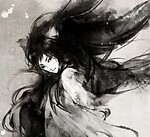 Adaneth - Cinema&TVVittorio Gassman Knight Grand Cross OMRI (1 September 1922 – 29 June 2000) popularly known as Il Mattatore, was an Italian actor, director, and screenwriter. He is considered one of the greatest Italian actors, whose career includes both important productions as well as dozens of divertissements. Gassman was born in Genoa to a German father, Heinrich Gassmann (an engineer from Karlsruhe), and an Italian Jewish mother, Luisa Ambron, born in Pisa. While still very young, he moved to Rome, where he studied at the Silvio D'Amico National Academy of Dramatic Arts. Gassman's stage debut was in Milan, in 1942, with Alda Borelli in Niccodemi's La Nemica. He then moved to Rome and acted at the Teatro Eliseo joining Tino Carraro and Ernesto Calindri in a stage company that remained famous for some time; with them he acted in a range of plays from bourgeois comedy to sophisticated intellectual theatre. In 1946, he made his film debut in Preludio d'amore, while only one year later he appeared in five films. In 1948, he played in Bitter Rice. It was with Luchino Visconti's company that Gassman achieved his mature successes, together with Paolo Stoppa, Rina Morelli and Paola Borboni. He played Stanley Kowalski in Tennessee Williams' Un tram che si chiama desiderio (A Streetcar Named Desire), as well as in Come vi piace (As You Like It) by Shakespeare and Oreste (by Vittorio Alfieri). He joined the Teatro Nazionale with Tommaso Salvini, Massimo Girotti, Arnoldo Foà to create a successful Peer Gynt (by Henrik Ibsen). With Luigi Squarzina in 1952 he co-founded and co-directed the Teatro d'Arte Italiano, producing the first complete version of Hamlet in Italy, followed by rare works such as Seneca's Thyestes and Aeschylus's The Persians. In 1956, Gassman played the title role in a production of Othello. He was so well received by his acting in the television series entitled Il Mattatore (Spotlight Chaser) that "Il Mattatore" became the nickname that accompanied him for the rest of his life. Gassman's debut in the commedia all'italiana genre was rather accidental, in Mario Monicelli's Big Deal on Madonna Street (1958). The Istituto Italiano di Cultura in London describes the film as "considered among the masterpieces of Italian cinema … The careers of both Gassman and Mastroianni were considerably helped by the success of the film, Gassman in particular, since before this point he was not deemed suitable for comedic roles." Subsequent acclaimed films featuring Gassman include: The Easy Life (1962), The Great War (1962), I mostri (1963), For Love and Gold (1966), Scent of a Woman (1974) and We All Loved Each Other So Much (1974). His productions have included many of the famous authors and playwrights of the 20th century, with repeated returns to the classics of Shakespeare, Dostoyevsky and the Greek tragicians. He also founded a theatre school in Florence (Bottega Teatrale di Firenze), which educated many of the more talented actors of the current generation of Italian thespians. In cinema, he worked frequently both in Italy and abroad. He met and fell in love with American actress Shelley Winters while she was touring Europe with fiancé Farley Granger. When Winters was forced to return to Hollywood to fulfil contractual obligations, he followed her there and married her. With his natural charisma and his fluency in English, he scored a number of roles in Hollywood, including Rhapsody with Elizabeth Taylor and The Glass Wall before returning to Italy and the theatre. In the 1990s he took part in the popular Italian Rai 3 TV show Tunnel in which he very formally and "seriously"' recited documents such as utility bills, yellow pages and similar trivial texts, such as washing instructions for a wool sweater or cookies ingredients. He rendered them with the same professional skill that made him famous while reciting Dante's Divine Comedy. On 29 June 2000, Gassman died of a heart attack in his sleep at his home in Rome at the age of 77. He was buried at Campo Verano.134 views
Adaneth - Cinema&TVVittorio Gassman Knight Grand Cross OMRI (1 September 1922 – 29 June 2000) popularly known as Il Mattatore, was an Italian actor, director, and screenwriter. He is considered one of the greatest Italian actors, whose career includes both important productions as well as dozens of divertissements. Gassman was born in Genoa to a German father, Heinrich Gassmann (an engineer from Karlsruhe), and an Italian Jewish mother, Luisa Ambron, born in Pisa. While still very young, he moved to Rome, where he studied at the Silvio D'Amico National Academy of Dramatic Arts. Gassman's stage debut was in Milan, in 1942, with Alda Borelli in Niccodemi's La Nemica. He then moved to Rome and acted at the Teatro Eliseo joining Tino Carraro and Ernesto Calindri in a stage company that remained famous for some time; with them he acted in a range of plays from bourgeois comedy to sophisticated intellectual theatre. In 1946, he made his film debut in Preludio d'amore, while only one year later he appeared in five films. In 1948, he played in Bitter Rice. It was with Luchino Visconti's company that Gassman achieved his mature successes, together with Paolo Stoppa, Rina Morelli and Paola Borboni. He played Stanley Kowalski in Tennessee Williams' Un tram che si chiama desiderio (A Streetcar Named Desire), as well as in Come vi piace (As You Like It) by Shakespeare and Oreste (by Vittorio Alfieri). He joined the Teatro Nazionale with Tommaso Salvini, Massimo Girotti, Arnoldo Foà to create a successful Peer Gynt (by Henrik Ibsen). With Luigi Squarzina in 1952 he co-founded and co-directed the Teatro d'Arte Italiano, producing the first complete version of Hamlet in Italy, followed by rare works such as Seneca's Thyestes and Aeschylus's The Persians. In 1956, Gassman played the title role in a production of Othello. He was so well received by his acting in the television series entitled Il Mattatore (Spotlight Chaser) that "Il Mattatore" became the nickname that accompanied him for the rest of his life. Gassman's debut in the commedia all'italiana genre was rather accidental, in Mario Monicelli's Big Deal on Madonna Street (1958). The Istituto Italiano di Cultura in London describes the film as "considered among the masterpieces of Italian cinema … The careers of both Gassman and Mastroianni were considerably helped by the success of the film, Gassman in particular, since before this point he was not deemed suitable for comedic roles." Subsequent acclaimed films featuring Gassman include: The Easy Life (1962), The Great War (1962), I mostri (1963), For Love and Gold (1966), Scent of a Woman (1974) and We All Loved Each Other So Much (1974). His productions have included many of the famous authors and playwrights of the 20th century, with repeated returns to the classics of Shakespeare, Dostoyevsky and the Greek tragicians. He also founded a theatre school in Florence (Bottega Teatrale di Firenze), which educated many of the more talented actors of the current generation of Italian thespians. In cinema, he worked frequently both in Italy and abroad. He met and fell in love with American actress Shelley Winters while she was touring Europe with fiancé Farley Granger. When Winters was forced to return to Hollywood to fulfil contractual obligations, he followed her there and married her. With his natural charisma and his fluency in English, he scored a number of roles in Hollywood, including Rhapsody with Elizabeth Taylor and The Glass Wall before returning to Italy and the theatre. In the 1990s he took part in the popular Italian Rai 3 TV show Tunnel in which he very formally and "seriously"' recited documents such as utility bills, yellow pages and similar trivial texts, such as washing instructions for a wool sweater or cookies ingredients. He rendered them with the same professional skill that made him famous while reciting Dante's Divine Comedy. On 29 June 2000, Gassman died of a heart attack in his sleep at his home in Rome at the age of 77. He was buried at Campo Verano.134 views -
La Storia siamo Noi: One for All - Fiat 500 (ENG SUB)
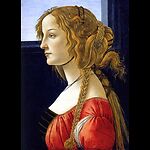 Adaneth - History&PoliticsThe FIAT Nuova 500, also known as just Fiat 500, is a super-utility car from the Turin-based manufacturer, produced from July 1957 to August 1975 and, in the Giardiniera version, until 1977. As soon as it went on sale, the "600" model was a huge success, thanks in part to the widespread optimism generated by the economic miracle and the installment system developed by SAVA. However, large segments of the Italian population still lacked the financial means to purchase a car, continuing to prefer motorcycles or the newly developed microcars like the ISO Isetta. With this huge potential customer base in mind, Vittorio Valletta had commissioned Dante Giacosa to create, at the same time as the "600", a super-utility car whose purchase, use and maintenance costs would be compatible with the modest budgets of working-class families. The idea to work on came unexpectedly from Hans Peter Bauhof, a young German employee at Deutsche-Fiat in Weinsberg who, in 1953, sent the Turin-based company the drawings of a two-seater microcar, inspired in shape by the famous Beetle, powered by a two-stroke engine positioned at the rear. Giacosa examined Bauhof's design and immediately rejected the engine. However, he liked the body design, and the technical layout was ideal for achieving a low production cost. The first prototypes were developed, achieving an excellent drag coefficient (Cd) of 0.38, and at the same time, design for the engine began. However, the time required for the design and development of the new engine was incompatible with the company's urgency to launch the "600" model, which is why the operation was somewhat delayed. Once the company's immediate needs had been met, Giacosa was finally able to calmly dedicate himself to the engine of the "Nuova 500". On July 1, 1957, the "Nuova 500" was previewed to Prime Minister Adone Zoli in the gardens of the Viminale. On July 2, the car was unveiled at the Sporting Club in Turin, a traditional setting where FIAT officially announced its new models at the time. Among the many who wanted to test drive the "Nuova 500" was Formula 1 champion Nino Farina. The name Nuova 500 was chosen to underline its lineage and similarity to the 500 "Topolino", as the lowest-cost car in the FIAT range, set at 490,000 lire, equal to approximately 13 of a worker's salaries. The 500 boom began, culminating in the 1960s with the D and F versions. The small car was popular, sales rose rapidly, and it became a social phenomenon on par with the 600, or perhaps even more so. Some people bought it because they couldn't afford anything else, and others bought it because they could afford everything. In 1959, Dante Giacosa received a Compasso d'Oro industrial design prize for the Fiat 500. This marked the first time a Compasso d’Oro was awarded to an automotive manufacturer.133 views
Adaneth - History&PoliticsThe FIAT Nuova 500, also known as just Fiat 500, is a super-utility car from the Turin-based manufacturer, produced from July 1957 to August 1975 and, in the Giardiniera version, until 1977. As soon as it went on sale, the "600" model was a huge success, thanks in part to the widespread optimism generated by the economic miracle and the installment system developed by SAVA. However, large segments of the Italian population still lacked the financial means to purchase a car, continuing to prefer motorcycles or the newly developed microcars like the ISO Isetta. With this huge potential customer base in mind, Vittorio Valletta had commissioned Dante Giacosa to create, at the same time as the "600", a super-utility car whose purchase, use and maintenance costs would be compatible with the modest budgets of working-class families. The idea to work on came unexpectedly from Hans Peter Bauhof, a young German employee at Deutsche-Fiat in Weinsberg who, in 1953, sent the Turin-based company the drawings of a two-seater microcar, inspired in shape by the famous Beetle, powered by a two-stroke engine positioned at the rear. Giacosa examined Bauhof's design and immediately rejected the engine. However, he liked the body design, and the technical layout was ideal for achieving a low production cost. The first prototypes were developed, achieving an excellent drag coefficient (Cd) of 0.38, and at the same time, design for the engine began. However, the time required for the design and development of the new engine was incompatible with the company's urgency to launch the "600" model, which is why the operation was somewhat delayed. Once the company's immediate needs had been met, Giacosa was finally able to calmly dedicate himself to the engine of the "Nuova 500". On July 1, 1957, the "Nuova 500" was previewed to Prime Minister Adone Zoli in the gardens of the Viminale. On July 2, the car was unveiled at the Sporting Club in Turin, a traditional setting where FIAT officially announced its new models at the time. Among the many who wanted to test drive the "Nuova 500" was Formula 1 champion Nino Farina. The name Nuova 500 was chosen to underline its lineage and similarity to the 500 "Topolino", as the lowest-cost car in the FIAT range, set at 490,000 lire, equal to approximately 13 of a worker's salaries. The 500 boom began, culminating in the 1960s with the D and F versions. The small car was popular, sales rose rapidly, and it became a social phenomenon on par with the 600, or perhaps even more so. Some people bought it because they couldn't afford anything else, and others bought it because they could afford everything. In 1959, Dante Giacosa received a Compasso d'Oro industrial design prize for the Fiat 500. This marked the first time a Compasso d’Oro was awarded to an automotive manufacturer.133 views -
La Storia siamo Noi: Enzo Ferrari (ENG SUB)
 Adaneth - History&PoliticsAnselmo Giuseppe Maria Ferrari (18 February 1898 – 14 August 1988) was an Italian racing driver and entrepreneur, the founder of Scuderia Ferrari in Grand Prix motor racing, and subsequently of the Ferrari automobile marque. Under his leadership in Formula One, Ferrari won nine World Drivers' Championships and eight World Constructors' Championships during his lifetime. The founder of the world's most prestigious car factory was always very attached to his city, where he lived right up until his death in 1988. His childhood dream came true and he became a racing driver, first privately and then as a member of the Alfa Romeo team. He was interested in everything: racing, organisation, relationships with the suppliers. His destiny of car maker was already clear. Ferrari decided to retire from competition after the birth of his first child: running the racing section of Alfa Romeo, he set up the Scuderia Ferrari in Modena. In 1939 Ferrari started up his own car building business with the company Auto Avio Costruzioni, which took on the name Ferrari after the Second World War. The factory was built in Maranello, 15 Km from Modena. It was in 1947 that a Ferrari (Model 125) made its first appearance on a racing track. At its second, in Rome, the driver Franco Cortese drove his Ferrari to its first victory. The rest belongs to history: nine world titles in the Formula 1 Championship, fourteen in the Prototype Sport World Championship and more than five thousand victories in top-class racing competitions. These victories, the splendid car models and the figure of Enzo Ferrari himself have become a legend which has conquered the world. He was widely known as il Commendatore or il Drake, a nickname given by British opponents in reference to the English privateer Francis Drake, due to Ferrari's demonstrated ability and determination in achieving significant sports results with his small company. In his final years, he was often referred to as l'Ingegnere ("the Engineer"), il Grande Vecchio ("the Grand Old Man"), il Cavaliere ("the Knight"), il Mago ("the Wizard"), and il Patriarca ("the Patriarch").96 views
Adaneth - History&PoliticsAnselmo Giuseppe Maria Ferrari (18 February 1898 – 14 August 1988) was an Italian racing driver and entrepreneur, the founder of Scuderia Ferrari in Grand Prix motor racing, and subsequently of the Ferrari automobile marque. Under his leadership in Formula One, Ferrari won nine World Drivers' Championships and eight World Constructors' Championships during his lifetime. The founder of the world's most prestigious car factory was always very attached to his city, where he lived right up until his death in 1988. His childhood dream came true and he became a racing driver, first privately and then as a member of the Alfa Romeo team. He was interested in everything: racing, organisation, relationships with the suppliers. His destiny of car maker was already clear. Ferrari decided to retire from competition after the birth of his first child: running the racing section of Alfa Romeo, he set up the Scuderia Ferrari in Modena. In 1939 Ferrari started up his own car building business with the company Auto Avio Costruzioni, which took on the name Ferrari after the Second World War. The factory was built in Maranello, 15 Km from Modena. It was in 1947 that a Ferrari (Model 125) made its first appearance on a racing track. At its second, in Rome, the driver Franco Cortese drove his Ferrari to its first victory. The rest belongs to history: nine world titles in the Formula 1 Championship, fourteen in the Prototype Sport World Championship and more than five thousand victories in top-class racing competitions. These victories, the splendid car models and the figure of Enzo Ferrari himself have become a legend which has conquered the world. He was widely known as il Commendatore or il Drake, a nickname given by British opponents in reference to the English privateer Francis Drake, due to Ferrari's demonstrated ability and determination in achieving significant sports results with his small company. In his final years, he was often referred to as l'Ingegnere ("the Engineer"), il Grande Vecchio ("the Grand Old Man"), il Cavaliere ("the Knight"), il Mago ("the Wizard"), and il Patriarca ("the Patriarch").96 views
